You are here
Speakers: Physical Sciences & Computing
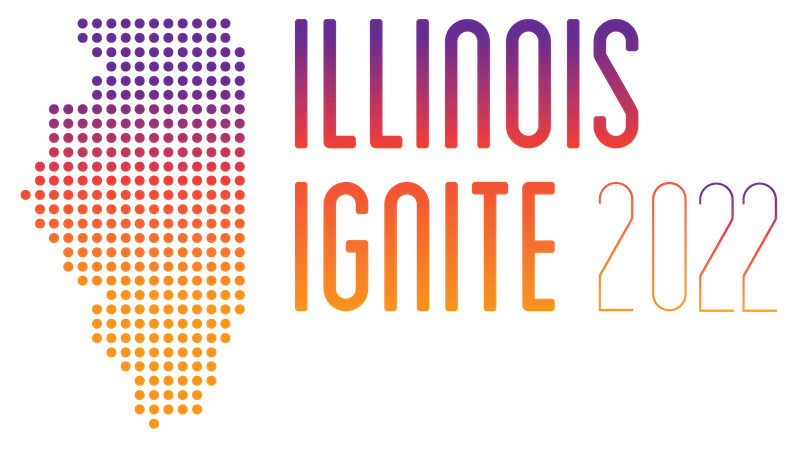
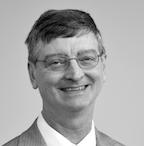
NCSA: Driving Innovation in Computing
Professor William Gropp is the director of the National Center for Supercomputing Applications. His research interests are in high performance computing, specifically development of scalable numerical algorithms for partial differential equations and models for highly scalable applications. Dr. Gropp has played a major role in the development of the MPI message-passing standard. He is coauthor of MPICH, the most widely used implementation of MPI, and was involved in the MPI Forum as a chapter author for both MPI-1 and MPI-2. Gropp is also one of the designers of the PETSc parallel numerical library and has developed efficient and scalable parallel algorithms for the solution of linear and nonlinear equations. With the other members of the PETSc core team, he was awarded the SIAM/ACM Prize in Computational Science and Engineering. In addition, he is involved in several other advanced computing projects, including performance modeling, data structure modification for ultra-high-performance computers, and development of component-based software to promote interoperability among numerical toolkits. Gropp has been named an ACM Fellow, an IEEE Fellow, a SIAM Fellow, and an AAAS Fellow. He received the IEEE Computer Society's Sidney Fernbach award, the SIAM-SC Career Award, and the ACM/IEEE-CS Ken Kennedy Award. Gropp is a member of the National Academy of Engineering and is the 2022 IEEE Computer Society President.
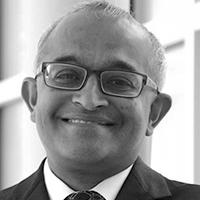
Using AI to Enhance Cybersecurity
Professor V.S. Subrahmanian is an expert on big data analytics including methods to analyze text/geospatial/relational/social network data, learn behavioral models from the data, forecast actions, and influence behaviors with applications to cybersecurity and counter-terrorism. He has written five books, edited ten, and published over 300 refereed articles. He is a Fellow of the American Association for the Advancement of Science and the Association for the Advancement of Artificial Intelligence and received numerous other honors and awards. His work has been featured in numerous outlets such as the Baltimore Sun, the Economist, Science, Nature, the Washington Post, American Public Media and more. He serves on the editorial boards of numerous journals including Science, and currently serves on the Board of Directors of SentiMetrix, Inc. and on the Research Advisory Board of Tata Consultancy Services. He previously served on the Board of Directors of the Development Gateway Foundation (set up by the World Bank), DARPA's Executive Advisory Council on Advanced Logistics and as an ad-hoc member of the US Air Force Science Advisory Board. Recent publications address modern Android spyware, game-theoretic approaches to strategic decision making in cyber warfare, and strategies for cyber deception.
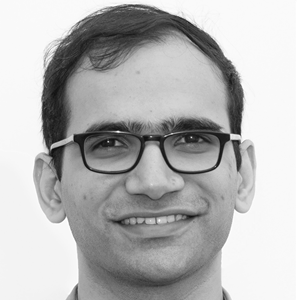
AI-Driven Networks across Earth and Space
Professor Vasisht works on wireless networks and internet-of-things with a focus on next generation networking systems such as satellite networks, 5G, and in-body networks. His recent publications can be found here, here and here. He is a 2020 Microsoft Inaugural Industry Research Fellow and a 2020 winner of the ACM SIGCOMM Doctoral Dissertation Award.
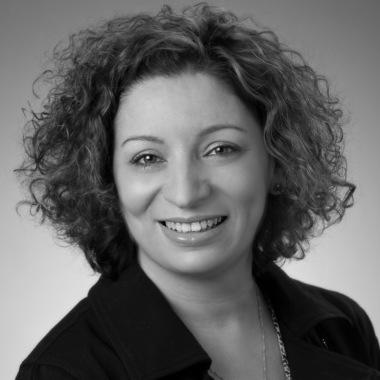
Integrated Sensing and Communication with Millimeter Wave Full Duplex
Besma Smida (Senior Member, IEEE) is an Associate Professor of electrical and computer engineering with the University of Illinois at Chicago. After completing her appointment as a Post-Doctoral Researcher and later a Lecturer at Harvard University, she became an Assistant Professor of electrical and computer engineering with Purdue University Northwest. She received the M.Sc. and Ph.D. degrees from the University of Quebec (INRS), Montreal, QC, Canada. She was a Research Engineer with the Technology Evolution and Standards Group of Microcell, Inc., (now Rogers Wireless), Montreal. She took part in wireless normalization committees (3GPP, T1P1). She has served as the Chair for IEEE Women in Engineering, Chicago Section, from 2011 to 2013, and has been the Chair of IEEE Communication Chapter, Chicago Section, since 2019. She currently serves as Editor for the IEEE TRANSACTIONS ON WIRELESS COMMUNICATIONS, Editor of the IEEE OPEN JOURNAL OF THE COMMUNICATIONS SOCIETY, and a Guest Editor SENSORS OPEN ACCESS JOURNAL. Previously she served as an Associate Editor for the IEEE COMMUNICATION LETTERS, and a Guest Editor for special issues of the IEEE JOURNAL ON SELECTED AREAS IN COMMUNICATIONS. She is a Communication Society Distinguished Lecturer for 2021-2022. She was awarded the INSIGHT Into Diversity Magazine’s 2015 100 Inspiring Women in STEM. She received the Academic Gold Medal of the Governor General of Canada in 2007 and the NSF CAREER award in 2015. She was a recipient of the IEEE GLOBECOM best paper award 2021. Her research focuses on In-band Full-Duplex systems and applications, backscatter modulation, IoT, and two-way communication networks.
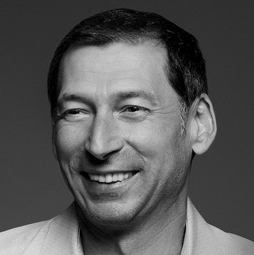
Innoface: Deep Learning for Impression Management
Alexander Todorov is the Leon Carroll Marshall Professor of Behavioral Science and Rosett Faculty Fellow at Chicago Booth. He studies how people perceive, evaluate, and make sense of the social world. Todorov’s research has appeared in a variety of publications, including Science, Nature Human Behavior, PNAS, and Journal of Neuroscience. Media coverage of his research has spanned internationally. Amongst the outlets in the US that have covered his research are PBS, NBC Today Show, NPR, The New York Times, and The Wall Street Journal. His most recent book publication is Face Value: The Irresistible Influence of First Impressions. Prior to joining Booth in 2020, Todorov was a professor of psychology at Princeton University. Todorov earned a PhD from New York University. Additionally, he holds a Research MA from the New School for Social Research, and a BA from Sofia University “St. Kliment Ohridski” in Sofia, Bulgaria. During his studies, he was a visiting researcher in the Department of Experimental Psychology at Oxford University.
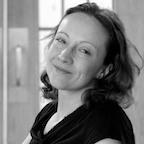
Responsible Computing with Human-Centered Data
Professor Jana Diesner's research integrates methods from network science, natural language processing and machine learning with theories from the social sciences and humanities to study interaction-based and information-based systems. Her scholarship has appeared in Nature Scientific Reports. Recent publications address predictions in collaboration networks and preventing adversarial attacks on social networks. Recognition for her research expertise includes appointments as an ASPIRE Leadership Academy Fellow (2020), CIO Scholar for Information Research and Technology at Illinois (2018), Natural Language Processing Expert in Residence for the Champaign Research Park (2018), Linowes Fellow at the Cline Center for Advanced Social Research (2018), National Center for Supercomputing Applications (NCSA) Faculty Fellow (2015), and Dori J. Maynard Senior Research Fellow (2016).
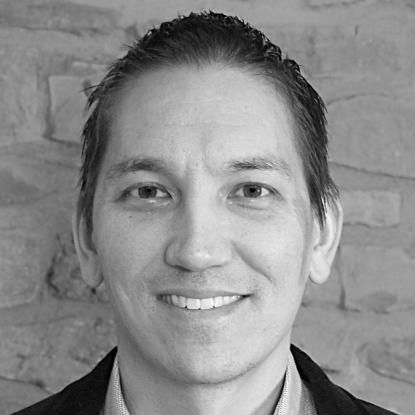
Robots and the Future of Work
Professor Hauser's research interests include open-world robotics, robot motion planning and control, and semi-autonomous systems, with applications to intelligent vehicles, robotic manipulation, robot-assisted medicine, and legged locomotion. He is a recipient of a Stanford Graduate Fellowship, Siebel Scholar Fellowship, Best Paper Award at IEEE International Conference on Humanoid Robots 2015, the NSF CAREER award, and three Amazon Research Awards. He also works as a consultant for Google's autonomous driving company, Waymo. Sone of his recent publications have appeared in IEEE Transaction on Robotics and The International Journal on Robotics Research.
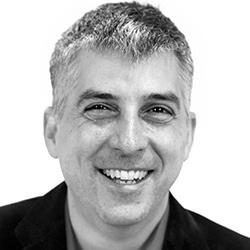
The Future is Hear: Audio Processing with AI
Bryan Pardo is Associate Professor in the Northwestern University Department Electrical Engineering and Computer Science with a courtesy appointment in Northwestern’s School of Music. He is co-director of the Northwestern University Center for Human Computer Interaction + Design and heads the Interactive Audio Lab. The objective of Pardo’s research is to develop theoretical advances in artificial intelligence, signal processing and interface design that enable the key technologies required to automatically find, label and manipulate important structures in audio, with a focus on music as a problem domain. When he’s not computing or teaching, he performs with a variety of groups in the Chicago area on clarinet and saxophone.
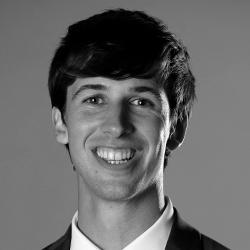
Ways to Advance Machine Intelligence through Material Design
Professor Truby’s lab develops material systems whose forms and functionalities give soft devices and machines novel bioinspired actuation, perception, control, and power capabilities. Towards this end, the group takes an interdisciplinary approach to solving key challenges in the design, fabrication, and control of autonomous soft robots and robotic materials. Professor Truby has earned a 2022 Young Investigator Research Program award from the Air Force Office of Scientific Research in addition to an Office of Naval Research’s Young Investigator Program (ONR YIP) award. His graduate and post-doctoral work has been highlighted by Nature and Science Robotics as one of the ten top articles and technologies in 2016 and 2018.
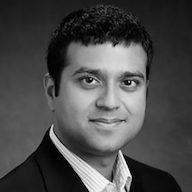
Nanophotonic Technologies for Enabling Quantum Scalability
Professor Gaurav Bahl performs experimental research at the interface between optical and mechanical systems. Of particular interest are the mechanisms by which light interacts mechanically with photonic microsystems, and how mechanical devices can affect and manipulate light. Recent publications have appeared in Nature and Nature Photonics. He is the recipient of a 2019 Presidential Early Career Award for Scientists and Engineers (PECASE); a 2017 Office of Naval Research (ONR) Director of Research Early Career Grant; and the 2015 Air Force Young Investigator Program (YIP) award for Chip-Scale Linear Non-Reciprocal Optomechanical Systems.
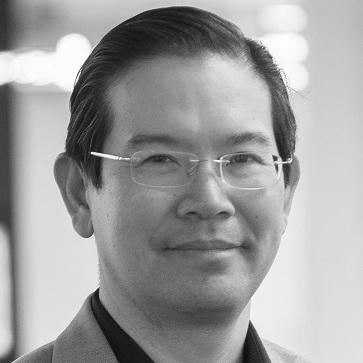
Bridging the Gap Between Quantum Applications and Machines with Physics-Aware Software Optimization
Fred Chong is the Seymour Goodman Professor in the Department of Computer Science at the University of Chicago and the Chief Scientist for Quantum Software at ColdQuanta. He is also Lead Principal Investigator for the EPiQC Project (Enabling Practical-scale Quantum Computing), an NSF Expedition in Computing. Chong is a member of the National Quantum Advisory Committee (NQIAC) which provides advice to the President and Secretary of Energy on the National Quantum Initiative Program. In 2020, he co-founded Super.tech, a quantum software company, which was acquired by ColdQuanta in 2022. Chong received his Ph.D. from MIT in 1996 and was a faculty member and Chancellor’s fellow at UC Davis from 1997-2005. He was also a Professor of Computer Science, Director of Computer Engineering, and Director of the Greenscale Center for Energy-Efficient Computing at UCSB from 2005-2015. He is a recipient of the NSF CAREER award, the Intel Outstanding Researcher Award, and 13 best paper awards. His research interests include emerging technologies for computing, quantum computing, multicore and embedded architectures, computer security, and sustainable computing. Prof. Chong has been funded by NSF, DOE, Intel, Google, AFOSR, IARPA, DARPA, Mitsubishi, Altera and Xilinx. He has led or co-led over $40M in awarded research, and been co-PI on an additional $41M.
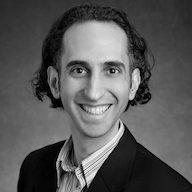
The Frontier of Illinois Quantum Computing and Networking Technology
Professor Brian DeMarco uses ultracold atom gases trapped in optical lattices to study models of strongly correlated systems that are relevant to materials such as high-temperature superconductors. Professor DeMarco serves on a number of national committees, including the APS Panel On Public Affairs and as the Chair of the NASA Fundamental Science Standing Review Board. Recent publications have appeared in Nature Communications and on the cover of Nature Physics.
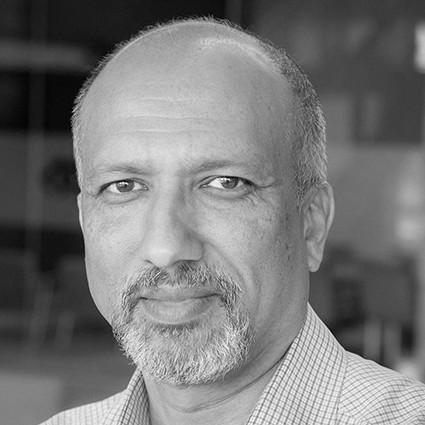
memQ: Solid state On-Chip Technologies for Scalable Quantum Applications
Professor Guha led the Center for Nanoscale Materials, a US Department of Energy Office of Science user facility, from 2015 to 2019. Before joining Argonne and the University of Chicago in 2015, he spent twenty years at IBM Research, where he last served as the director of physical sciences. At IBM, Guha pioneered the materials research that led to IBM’s high dielectric constant metal gate transistor, one of the most significant developments in silicon microelectronics technology. He was also responsible for initiating or significantly expanding IBM’s R&D programs in silicon photonics, quantum computing, sensor based cyberphysical systems, and photovoltaics. Guha is a member of the National Academy of Engineering and a Fellow of the Materials Research Society, American Physical Society, a 2018 Department of Defense Vannevar Bush Faculty Fellow, and the recipient of the 2015 Prize for Industrial Applications of Physics.
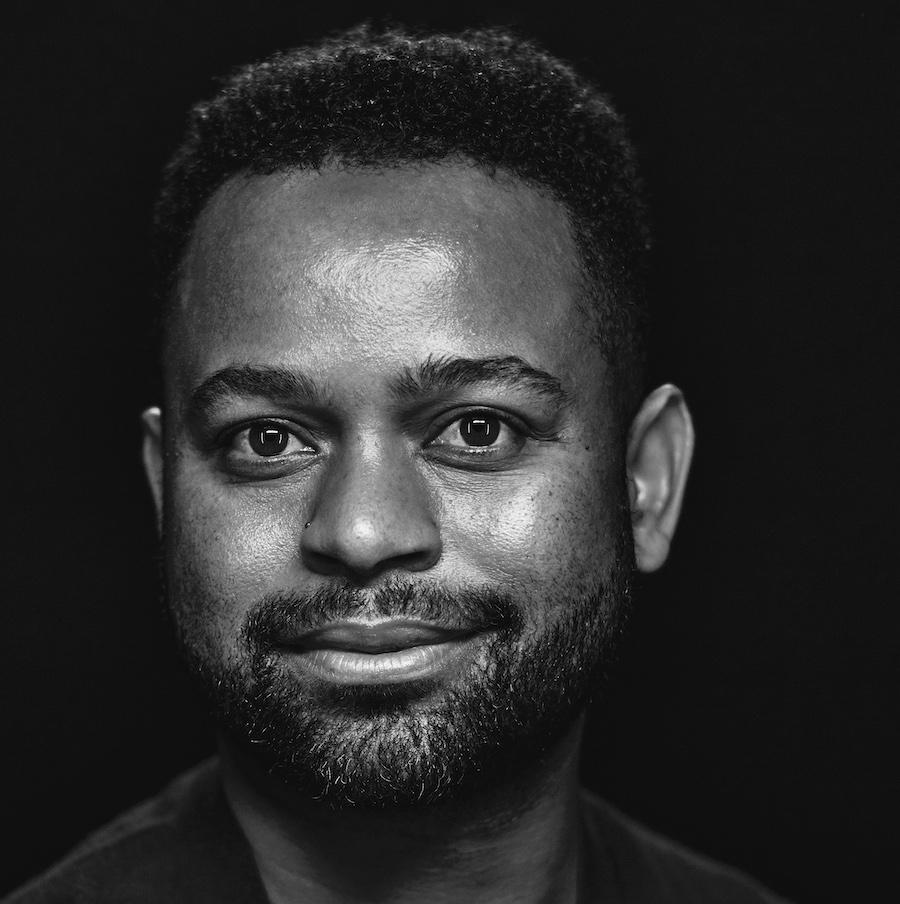
Quantum Engineering Research and Education Programs at UIC
Thomas A. Searles currently serves as an Associate Professor in the Electrical & Computer Engineering at the University of Illinois Chicago, hired under the University of Illinois System Distinguished Faculty Recruitment Program. This past year (20-21), he was a Martin Luther King Visiting Professor at MIT and served as the Director of the IBM-HBCU Quantum Center. Thomas received his Ph.D. in Applied Physics from Rice University in 2011, where his thesis work primarily focused on the magneto-optical properties of carbon nanotubes. Upon his appointment at Howard University in the Fall of 2015, Thomas has established a new research program in applied and materials physics, which now focuses on quantum materials, metamaterials and quantum information science and engineering at UIC. In recognition for his research in light-matter interactions and his capability to train and mentor Black students in Physics and Engineering, Thomas was recently awarded the inaugural AIP-NSBP Joseph A. Johnson Award for Excellence and an NSF CAREER Award. Thomas graduated from Morehouse College with a B.S. in Mathematics and Physics. He is a native of Albany, GA.
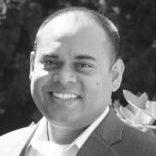
Low-Temperature Conversion of Natural Gas and Biogas to Liquid Fuels
Dr. Meenesh R. Singh is an Assistant Professor in the Department of Chemical Engineering and the Director of the Materials and Systems Engineering Lab (MaSEL) at UIC. Prior to this appointment at UIC, he was a Postdoctoral Fellow at the Joint Center for Artificial Photosynthesis with a joint affiliation to UC Berkeley and Lawrence Berkeley National Lab. Dr. Singh leads the Materials and Systems Engineering Lab (MaSEL) at UIC, where his research group is developing state-of-the-art computational and experimental tools to solve grand challenges of the 21st century.

Microfluidic Superhighway Battery Desalination
Professor Kyle Smith's research focuses on microstructure and transport in heterogenous and porous materials, as well as mass, charge, heat and fluid transport in electrochemical systems. He is the recipient of the 2018 ISE-Elsevier Prize for Applied Electrochemistry. Recent publications have appeared in the Journal of Applied Physics and Physical Review Materials and the Journal of the Electrochemical Society.
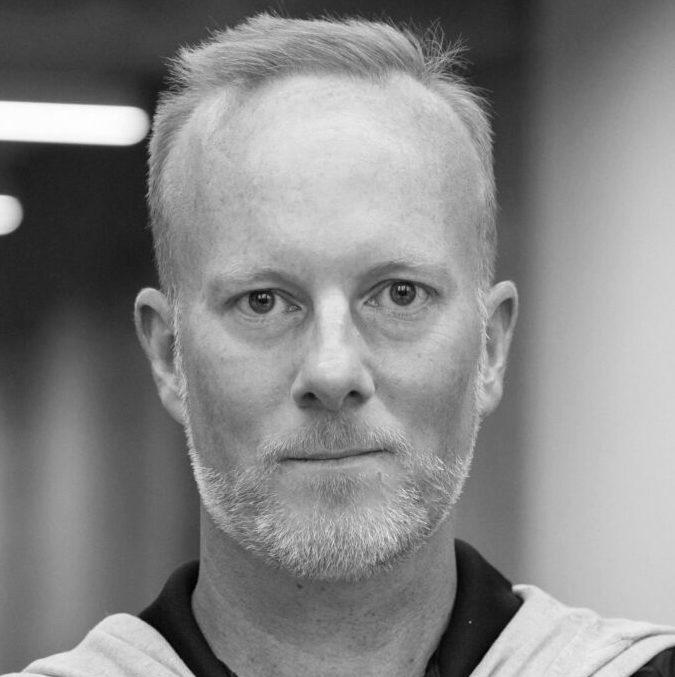
Building Market Pull for Carbon-Negative Chemicals
Professor Ted Sargent’s research group spans the fields of chemistry, physics, and engineering covering the areas of electrocatalytic technology to synthesize chemical fuels and feedstocks, next generation solar technologies, energy harvesting, quantum dots and low-dimensional semiconductors, new semiconducting materials for use in on-chip signal processing, and the rational design of new materials for optoelectronics. Professor Sargent is a Fellow of the Royal Society of Canada, the AAAS, the IEEE and of the Canadian Academy of Engineering. He has founded several startups - InVisage Technologies, which was acquired by Apple in 2017, Xagenic which was partially acquired in 2018 by the General Atomics - Electromagnetic Systems Group, and QD Solar. Recent publications have appeared in Nature, Science, and Nature Catalysis.
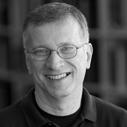
Professor John Torkelson’s research group focuses on engineering and optimizing polymer properties by tuning molecular-scale responses via dynamic chemistry, nanoscale confinement, chain architecture, and novel solid-state processing, among other methods. For example, the group has recently developed three simple dynamic chemistry approaches that allow for spent thermosets or crosslinked polymers to be recycled by melt-state processing into new crosslinked polymer products with full recovery of crosslink density and associated properties. The group also pursues novel, industrially scalable solid-state processing approaches to design and produce modified polymers, polymer blends, composites, and nanocomposites that cannot be produced by conventional melt-state processing. Professor Torkelson was awarded the Polymer Physics Prize by the Journal of Polymer Science Part B: Polymer Physics and the Charles M.A. Stine Award from the Materials Engineering and Science Division of the American Institute of Chemical Engineering. He is also a Fellow of the American Physical Society. Recent publications appear in Macromolecules, ACS Applied Polymer Materials, and Polymer.

